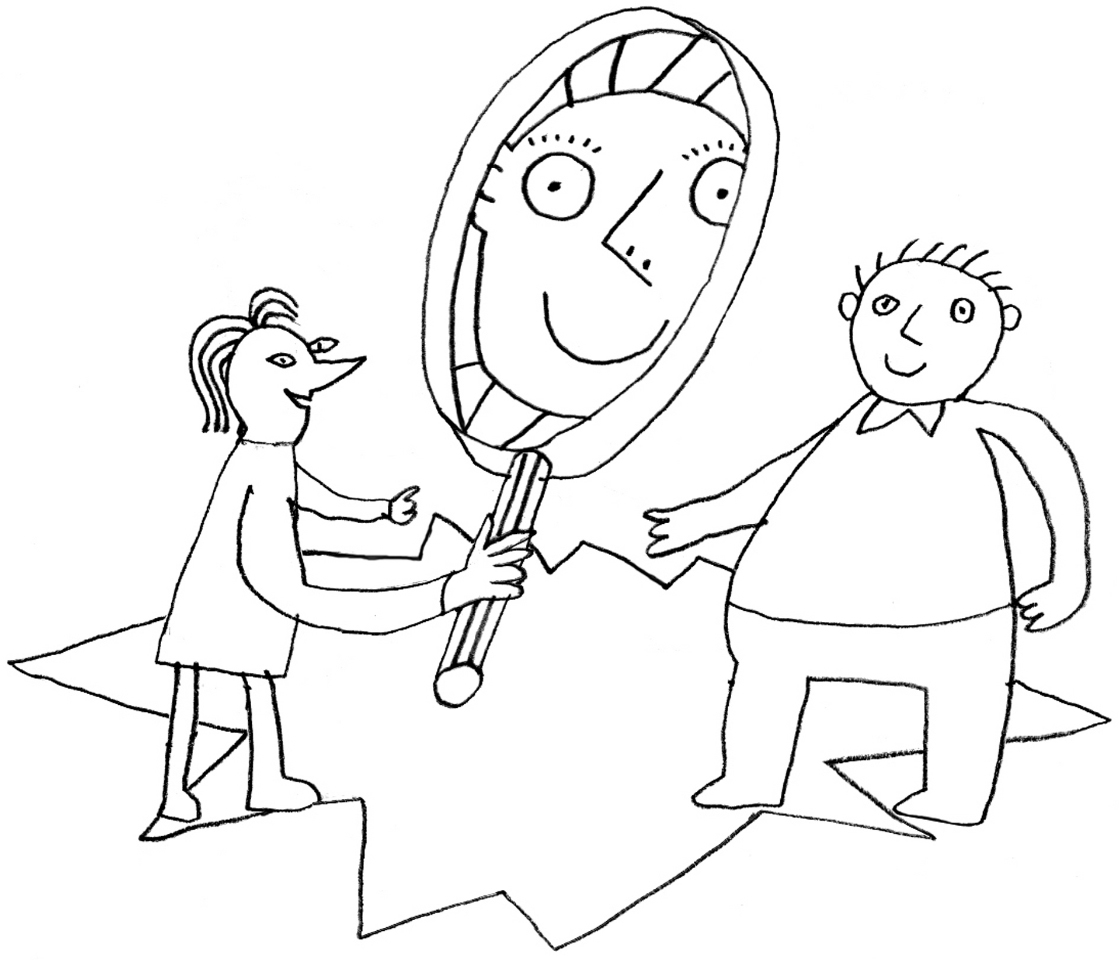
Introduction
The picture shows a girl viewing a boy through a magnifying glass. The image created by the magnifying glass is similar but not identical to the boy in reality. The boy does not know what this image of him looks like. It may be wrong or true, even showing more detail than the boy is aware of or that he would like to expose. They are both smiling, so the differences between perception and reality do not seem to present a problem. The girl is smiling at the image, not the boy himself.
We all direct our magnifying glasses, as it were, at other people and störe their images in our minds. We judge people by these mental images. They are the raw material out of which we create stereotypes. We all draw on such simplifications of the complex world that none of us is able to understand fully. If stereotypes turn into prejudices, particularly negative ones, they may sow disruption and hostility in society.
The exercises in this chapter help the students to become aware of their perceptions and prejudices of others, to reflect on them critically and to correct them if necessary. This chapter therefore focuses on the social dimension of democracy and human rights. Our mutual perceptions, prejudices and ways of interacting with each other provide the basis on which democracy and human rights need to be rooted. It is not sufficient to have democracy and human rights laid down as the principles of the government and the Constitution; their social and cultural roots are equally important.
Generally, the students should understand the function of stereotypes in reducing the complexity of our societies and the world we live in. They should also understand that stereotypes may be dangerous, sowing the seed for hostility in a society. This may happen particularly when we meet people who are foreign and evoke feelings of fear. Education helps people to identify prejudices and misleading stereotypes and correct them.
Older students may also understand that our perceptions and prejudices ultimately contribute to a culture that either supports, or undermines, democracy and human rights in a community. Literally democracy begins with me – and you.
- Exercise 4.1. - All different, all equal
Educational objectives The students learn to know and accept each other in a group. The students discover what they have in common...
- Exercise 4.2. - Difference
Educational objectives The students experience difference and understand that difference is rooted in social structures. Experience of difference is crucial in adolescence....
- Exercise 4.3. - True and false
Educational objectives The students become aware of the stereotypes in their minds and reflect on them critically. They understand that simplifications and...
- Exercise 4.4. - First impressions
Educational objectives The students are able to identify stereotypes and become aware of the diversity of impressions and perceptions that people have...
- Exercise 4.5. - We all have prejudices
Educational objectives In this exercise, the students question stereotypes and prejudices about other people and minorities. They discover the perceptions of different...
- Exercise 4.6. - We are all equal, but some are more equal than others
Educational objectives The students identify and analyse the reasons and motives for discriminating against others. This exercise focuses on how socio-economic factors...
- Exercise 4.7. - The tourists
Educational objectives This role-play simulates a clash of cultures and allows the students to observe the stereotypes they bring into the role-play....
- Exercise 4.8. - Globingo: "A human being is part of the whole world".
Educational objectives The purpose of this game is to show that a human being is part of the whole world. Resources A...

